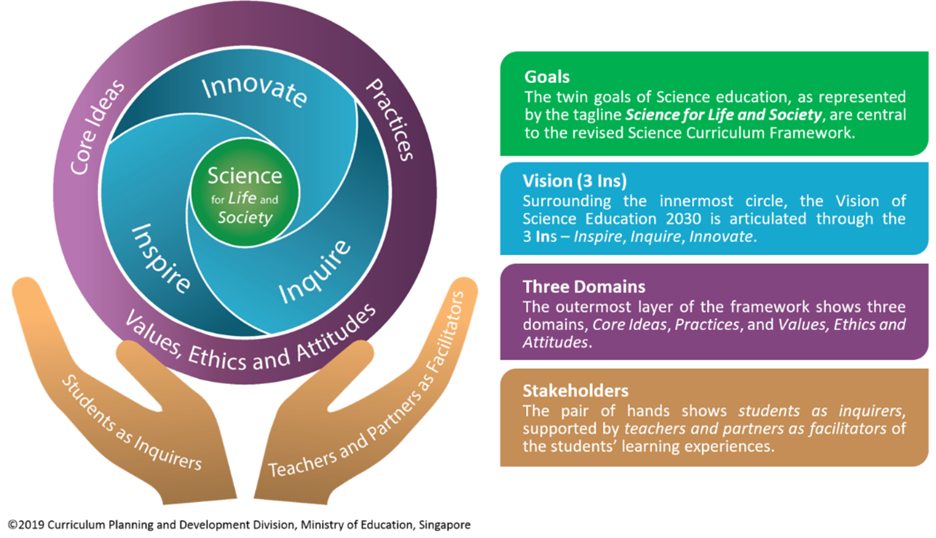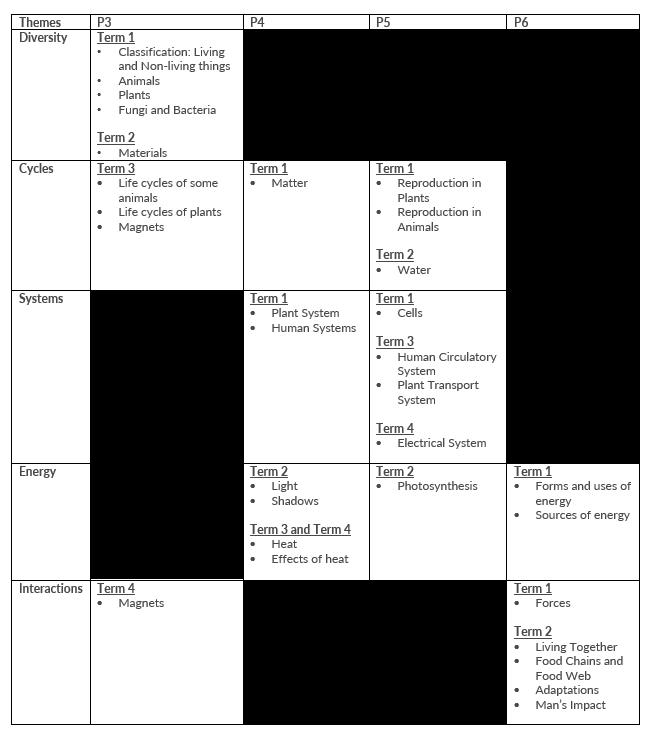Science

The Science Curriculum Framework
The Science Curriculum Framework encapsulates the thrust of Science education in Singapore to provide students with strong fundamentals in Science for life, learning, citizenry and work.
The goals of Science Education-Science for Life and Society is at the core of the framework. Vision of Science Education 2030 is articulated through the 3Ins – Inspire, Inquire, Innovate. The outermost layer of the framework shows three domains, Core ideas, Practices and Values, Ethics, Attitudes. Together, they make up a holistic science curriculum. The hands show students, teachers and partners (all stakeholders) embracing science in their roles as inquirers and facilitators.

Introduction
At Ai Tong School, the science department hopes to nurture students to be self-directed learners with curious minds and a heart for the environment.
Hence, our department objectives are to:
• educate students to achieve high scientific literacy through the provision of a science learning environment that excites, engages and extends students’ knowledge using hands-on, inquiry-based learning strategies.
• equip students with competencies to meet the challenges of the 21st century through the integration of social emotional learning, ICT, self-directed and collaborative learning in the teaching of science.
The following is an overview of topics taught from P3 to P6 (Standard Science).


